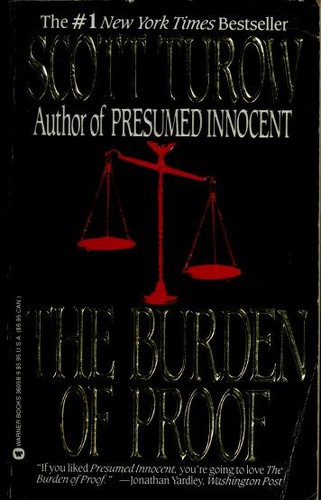technicat@bookwyrm.social reviewed The Burden of Proof by Scott Turow
Vintage Turow
I was sure I'd read this long ago but after finishing this reread, I still don't remember having read much beyond the beginning the first time. Maybe I didn't. But while there's an ongoing mystery like in his previous and first book, Presumed Innocent, this is a slow and contemplative book, pretty much an ongoing mid-life crisis, so it's probably better digested by readers who middle-aged and beyond (you never see reading-age guidelines like that), and if I read this near its publication date thirty-five years ago when I was in my twenties (it was his second novel) I might have found it a snooze.
But now I appreciate the writing (I've pretty much liked everything Turow has written) and the character portrait, especially considering the protagonist, a character from the first book, is a foreign-born Latin-American Jew. I admire how Turow stretches himself as a writer (a lot of …
I was sure I'd read this long ago but after finishing this reread, I still don't remember having read much beyond the beginning the first time. Maybe I didn't. But while there's an ongoing mystery like in his previous and first book, Presumed Innocent, this is a slow and contemplative book, pretty much an ongoing mid-life crisis, so it's probably better digested by readers who middle-aged and beyond (you never see reading-age guidelines like that), and if I read this near its publication date thirty-five years ago when I was in my twenties (it was his second novel) I might have found it a snooze.
But now I appreciate the writing (I've pretty much liked everything Turow has written) and the character portrait, especially considering the protagonist, a character from the first book, is a foreign-born Latin-American Jew. I admire how Turow stretches himself as a writer (a lot of writers think they're stretching themselves and then complain how the PC crowd gets on their case for their lazy caricatures). There are a couple of lines of dialogue like "He'll come after your scalp" and though I have no doubt people talk like that (especially lawyers, the 80s...), it does feel jarring, the otherwise fine writing doesn't have dialogue straight out of Goodfellas or the White House. Actually, I do kind of remember thinking that the first time I read this, except the White House part.

